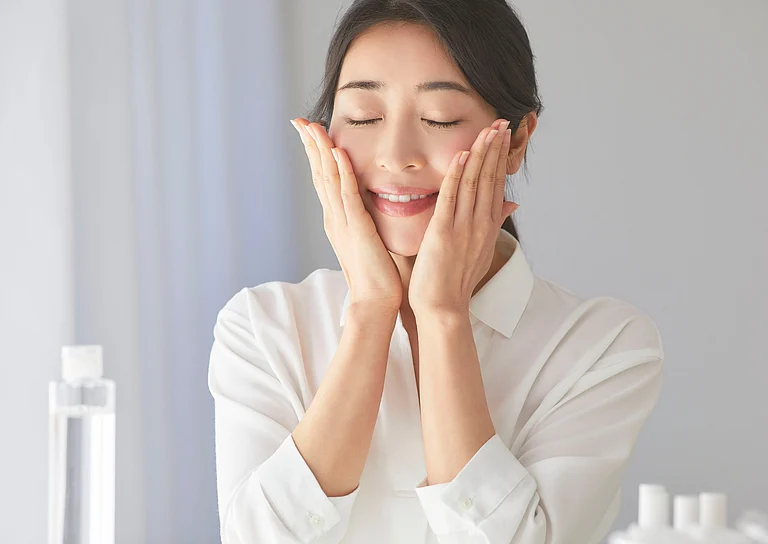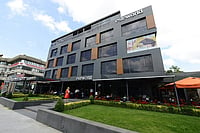The importance of protecting the skin from dangerous UVA and UVB rays is universally understood.
Beyond the risk of skin cancer, excessive sun exposure can accelerate skin aging, resulting in wrinkles, sunspots, and skin dullness or dryness.
About 80% of facial aging is attributed to sun exposure. 1
Photo-damaged skin contributes to loss of skin elasticity, roughness and dryness, irregular pigmentation, and deep wrinkling.
Understanding the significance of sun protection is paramount in achieving lasting skin rejuvenation and combating the visible signs of aging.
Effects of the sun on skin:1
Premature Aging: Prolonged sun exposure accelerates the breakdown of collagen and elastin fibers in the skin, leading to the development of fine lines, wrinkles, and sagging skin.
Hyperpigmentation: Sun exposure can exacerbate skin discoloration and hyperpigmentation, such as sunspots, age spots, and melasma. These pigment-related issues can significantly impact the appearance of the skin, contributing to an uneven tone and texture.
Sunburns: Sunburns not only cause discomfort and pain but also damage skin cells. Repeated sunburns can lead to long-term skin damage, including premature aging and an increased risk of skin cancer.
Skin Cancer Risk: Beyond cosmetic concerns, unprotected sun exposure poses a significant risk factor for developing skin cancer, including melanoma, basal cell carcinoma, and squamous cell carcinoma.
Sun Protection after Skin Treatments:2
Sun protection is especially important after cosmetic treatments, as most of these treatments leave the skin vulnerable. Popular non-surgical anti-aging treatments, such as laser resurfacing, chemical peels, and micro-needling result in a controlled skin trauma, making the skin extremely sensitive and more prone to UV radiation absorption. Moreover, UV exposure can compromise the efficacy of skincare treatments and exacerbate post-treatment inflammation and pigmentation issues. Similarly, after cosmetic surgery procedures like a facelift or neck lift surgery, any scarring is highly prone to becoming sunburned. Following proper sun protection protocols, post-treatment ensures optimal outcomes and enhances the longevity of results.
Sunscreen and Anti-aging2
Sunscreens are the products combining several ingredients which protect the skin by absorbing, blocking or scattering UV radiation.
Additionally, sunscreens combat photoaging by preventing collagen degradation, reducing wrinkle formation, and preserving skin elasticity.
By incorporating sunscreens into daily skincare routines, individuals can effectively mitigate the detrimental effects of UV exposure, ultimately promoting healthier, more youthful-looking skin.
SUN PROTECTION TIPS2
Follow these common sense sun protection rules:
Always wear a broad-spectrum sunscreen (SPF 30 or higher)
Avoid peak sun hours, typically 10:00 am – 2:00 pm
Wear sunglasses when outdoors
Dress in a large wide-brimmed hat and sun protection clothing
Be aware that even sitting near windows in your car or home can expose your skin to UV rays
Issued in Public Interest by Dr.Reddy's Laboratories LTD


























